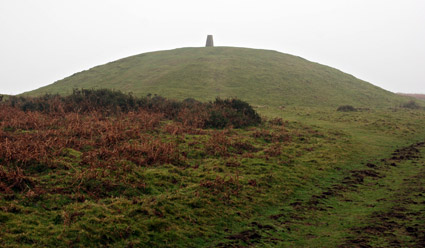Does one’s view of origins have anything to do with apologetic method? This was the subject of a recent debate held at Southern Evangelical Seminary. Three views were held at the debate. Jason Lisle argued that a presuppositional apologetic assumes a hermeneutic of literalism. Since presuppositionalists typically hold that scripture is the ultimate authority on what is true and since there is no indication found in the text that the six day creation account was anything but an account of actual events in 24 hr days there is no reason found in scripture to abandon a young-earth, six day creation position. The only reason for abandoning this view is found outside scripture and entails borrowing from methodological scientific naturalism or other non-biblical methods and worldviews.
The view of Richard Howe is that holding to a young earth account does not entail presuppositionalism. One might, as Howe indeed does, hold to a young earth view and yet disagree with presuppositional method. Howe is somewhat Thomistic. Consequently Howe’s apologetic is classical and seeks to prove a generic theism with appeal to reason.
Finally, the view of K.Scott Oliphint is that presuppostionalism does not entail a literal hermeneutic and that, while there can be a wide variety of interpretations of Genesis, there should only be one apologetic method-presuppostionalism. The reason for this tack was slightly less clear than Howe and Lisle. The gist of Oliphint’s argument was that presuppositionalism is entailed by scripture’s authority, but Genesis is open to interpretation. The young earth debate is a question of exegesis and not necessarily how one sees scripture as a whole.
In my view Jason Lisle won the debate if we judge his strategy and success in defending his positions. Lisle really only had to show one thing – that six day creation is exegetically valid. He had to show how the text assumes young earth, six day creation. My view is that he does a pretty good job of this. But the strategy is important. His opponent is not Howe. Why? Because it is Oliphint who disagrees with Lisle’s answer to the question, not Howe. What’s more, Oliphint does not strongly disagree with Lisle. Lisle’s basic premise is that presuppositionalism entails a young earth six day, creation account. Oliphint is the one who denies this. Howe is arguing that a six day, young earth creation account does not entail presuppositionalism. Howe’s argument does not directly contradict Lisle’s premise. If Lisle can argue that a six day, young earth creation account is exegetically sound, then he defeats Oliphint’s argument.
The challenge to Oliphint is: can he show that there is another exegetically sound interpretation of Genesis? Oliphint’s answer is that the interpretation of Genesis has always been debated in the history of the church and its reinterpretation does not require compromise with methodological naturalistic scientism. This is a fairly weak argument essentially saying that many top theologians have reached many conclusions about the meaning of Genesis. Oliphint could have strengthened his argument by offering an alternative interpretation of Genesis, but he doesn’t. Instead his argument is a general defence of presuppositionalism aimed mainly at defeating Howe’s argument for a classical method.
In my opinion Lisle succeeds in what he sets out to do. And is in a comfortable position when it comes to defending presuppositionalism – there are two of them on the panel. Lisle lets Oliphint defend the method. There are also two young earthers – Lisle and Howe. So in Lisle’s opening argument he has the full support of the one who objects to his apologetic method.
You can watch the debate here: http://www.youtube.com/watch?v=T4woxDHC5AU




4 Comments
Peter Valletta
In defence of Oliphint's view, another exegetically sound interpretation of the first chapter of Genesis is found in, "The Lost World of Genesis" by John Walton. I would question Lisle's view that "there is no indication found in the text that the six day creation account was anything but an account of actual events in 24 hr days" by pointing out verse 2 of Genesis 1 – God is 'creating' within a pre-existing earth – something else must be going on here. Not that I'm suggesting That God did not create everything ex-nihlilo – I believe he did – I just don't think that this is what Genesis 1 is describing – Oliphint may or may not have put his view across well but I tend to agree with his argument that you can believe in the ultimate authority of scripture without necessarily holding a literal view of Genesis 1 (or any other scripture portion for that matter)
Ben Holloway
Peter! good to hear from you. And yes, as you can tell from my post, I wasn't seeking to defend Lisle's position (even though I hold it), only to point out that his strategy was a good one. I think I heard John Walton present his view at Moody and found it somewhat plausible at the time. He said something like: The earth is old but living things are not. Is that right? Is there a difference between his view and the gap theory?
wakawakwaka
Lisle is an absolute joke. He just begs the question over and over again. At least Oliphant knows how to make an arguement and understands his own limitations
wakawakwaka
This comment has been removed by the author.